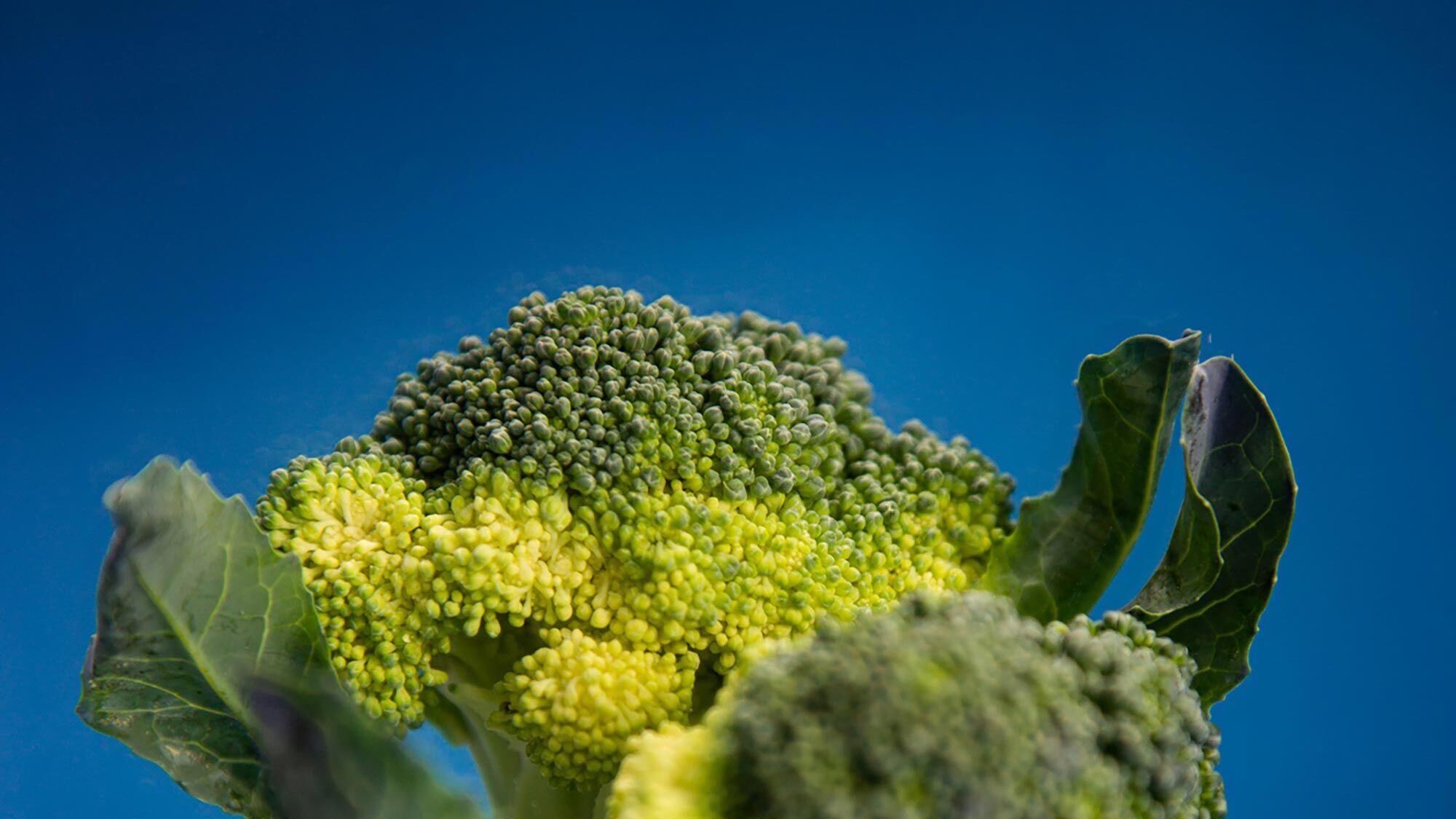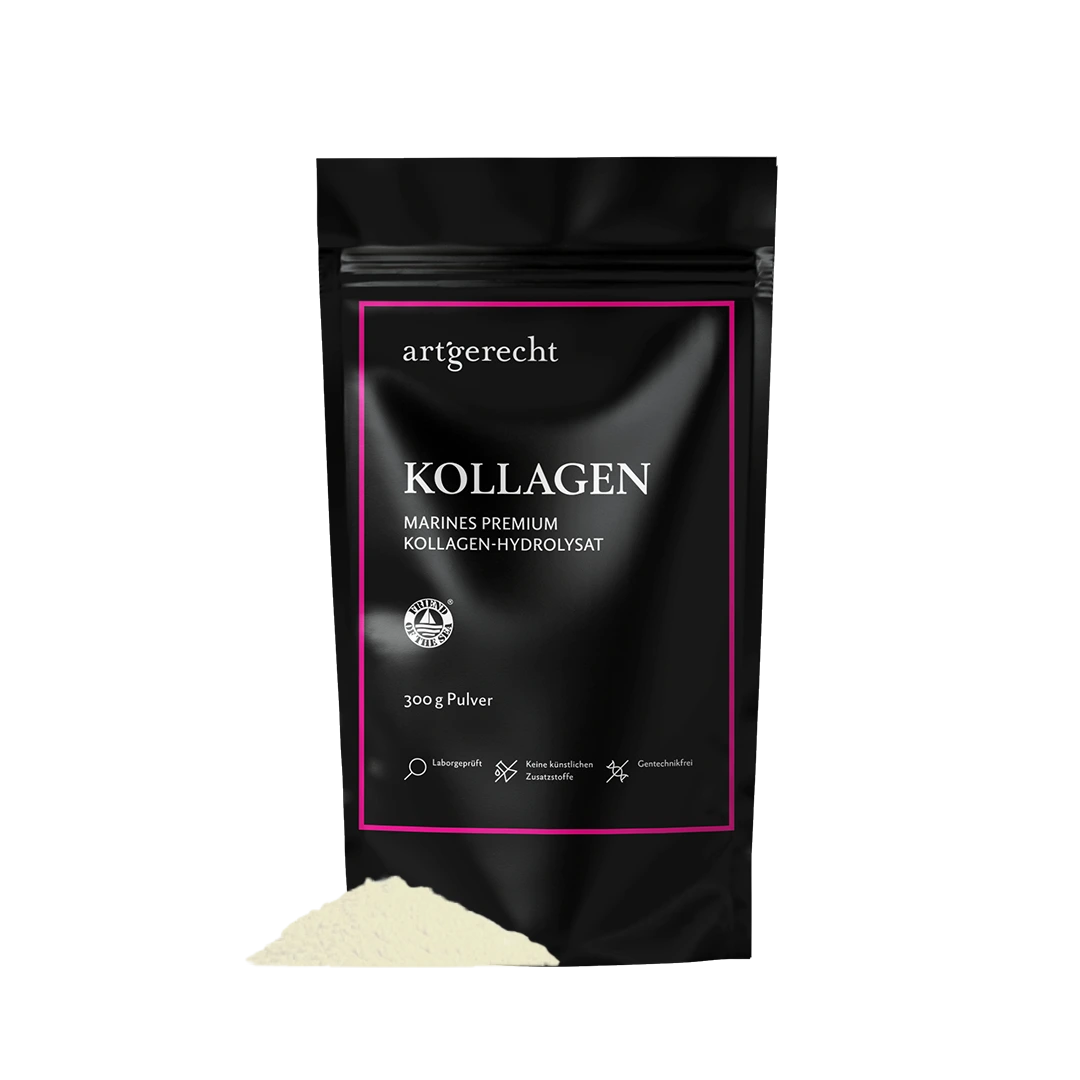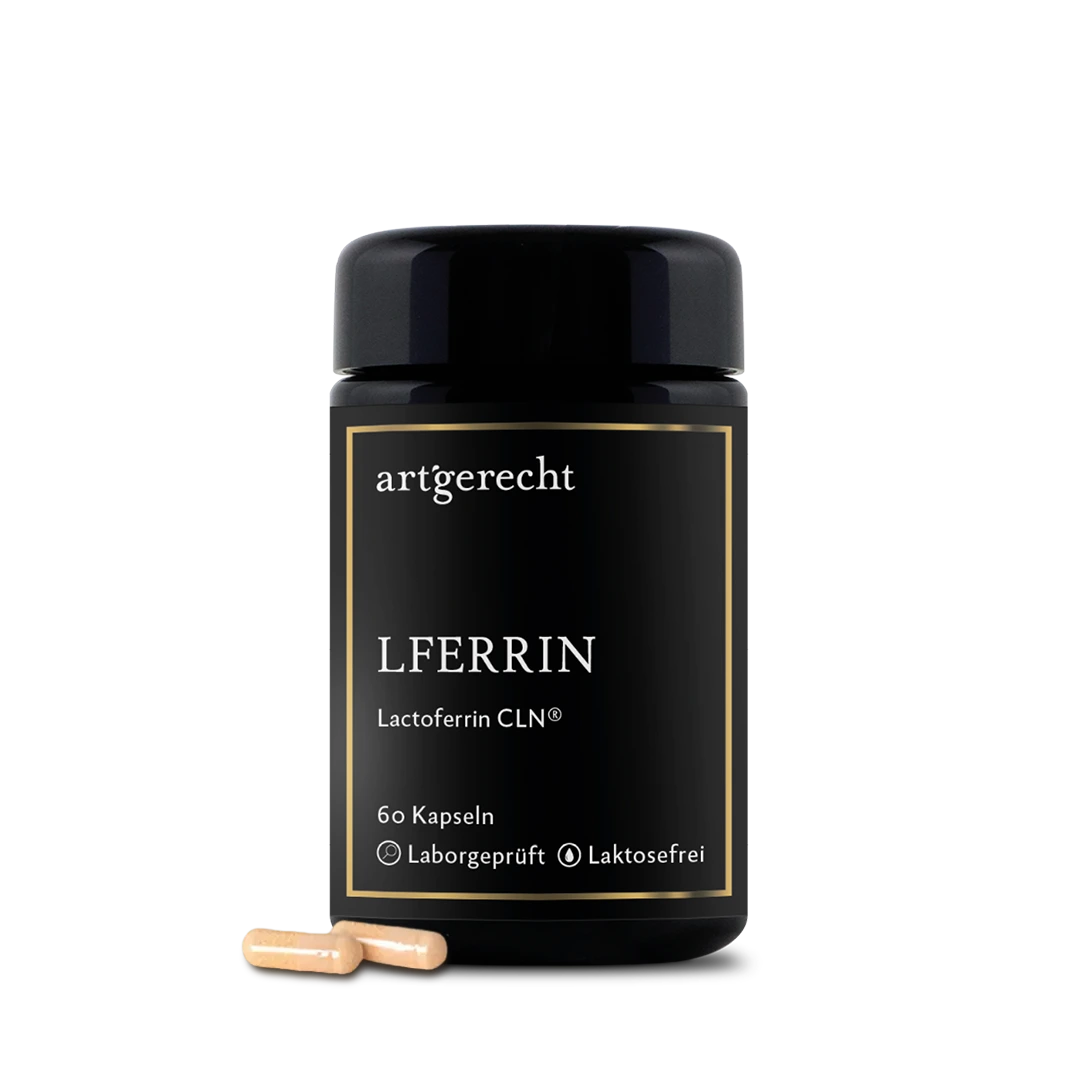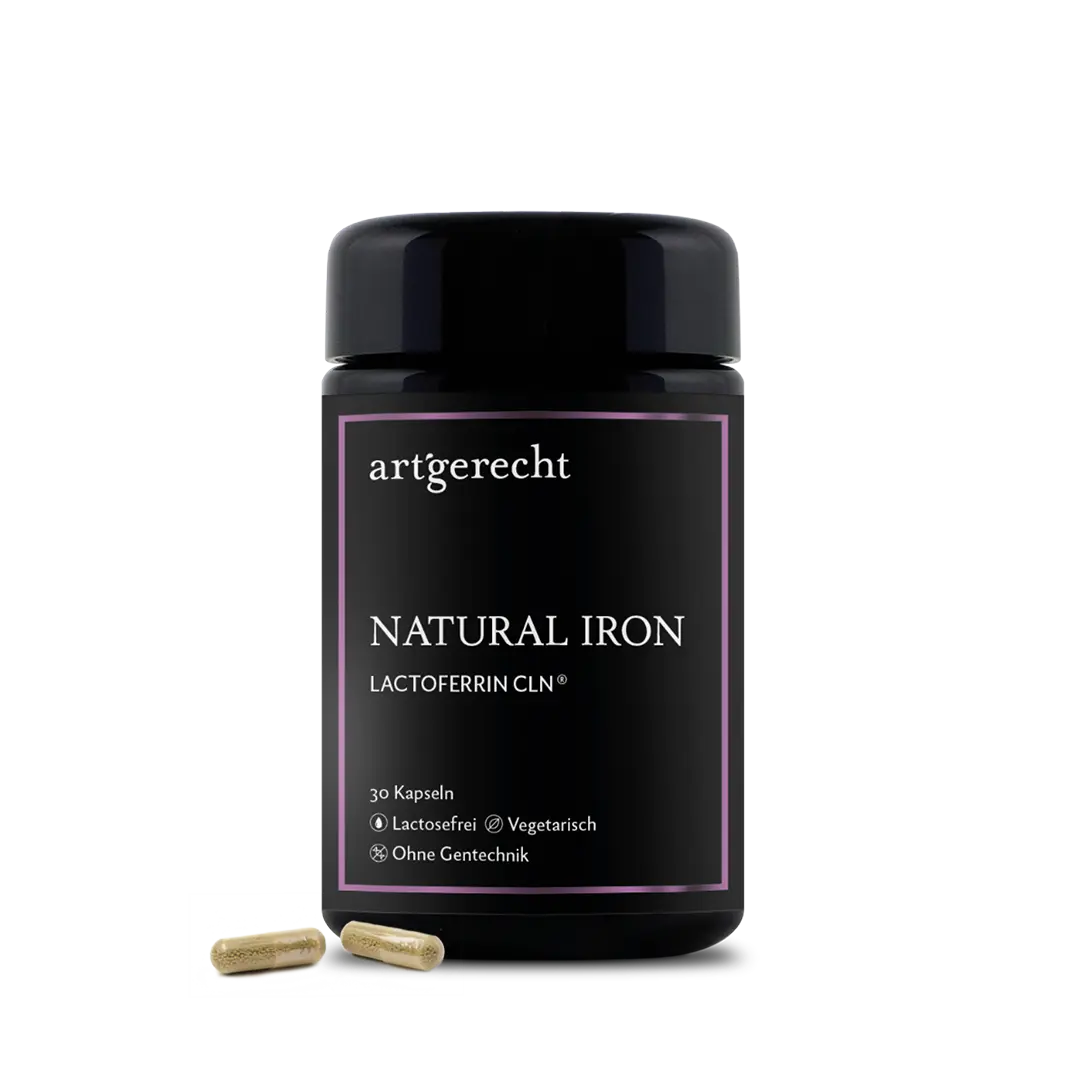- This is how important a healthy diet is
- What can we learn from the diet of our ancestors for our health?
- Healthy and delicious? What a healthy diet can look like
- And what is with carbohydrates – healthy or not?
- Ideas for healthy recipes and light cooking in everyday life
- Our tip: Fewer meals are healthy and good for digestion
- Conclusion:
-
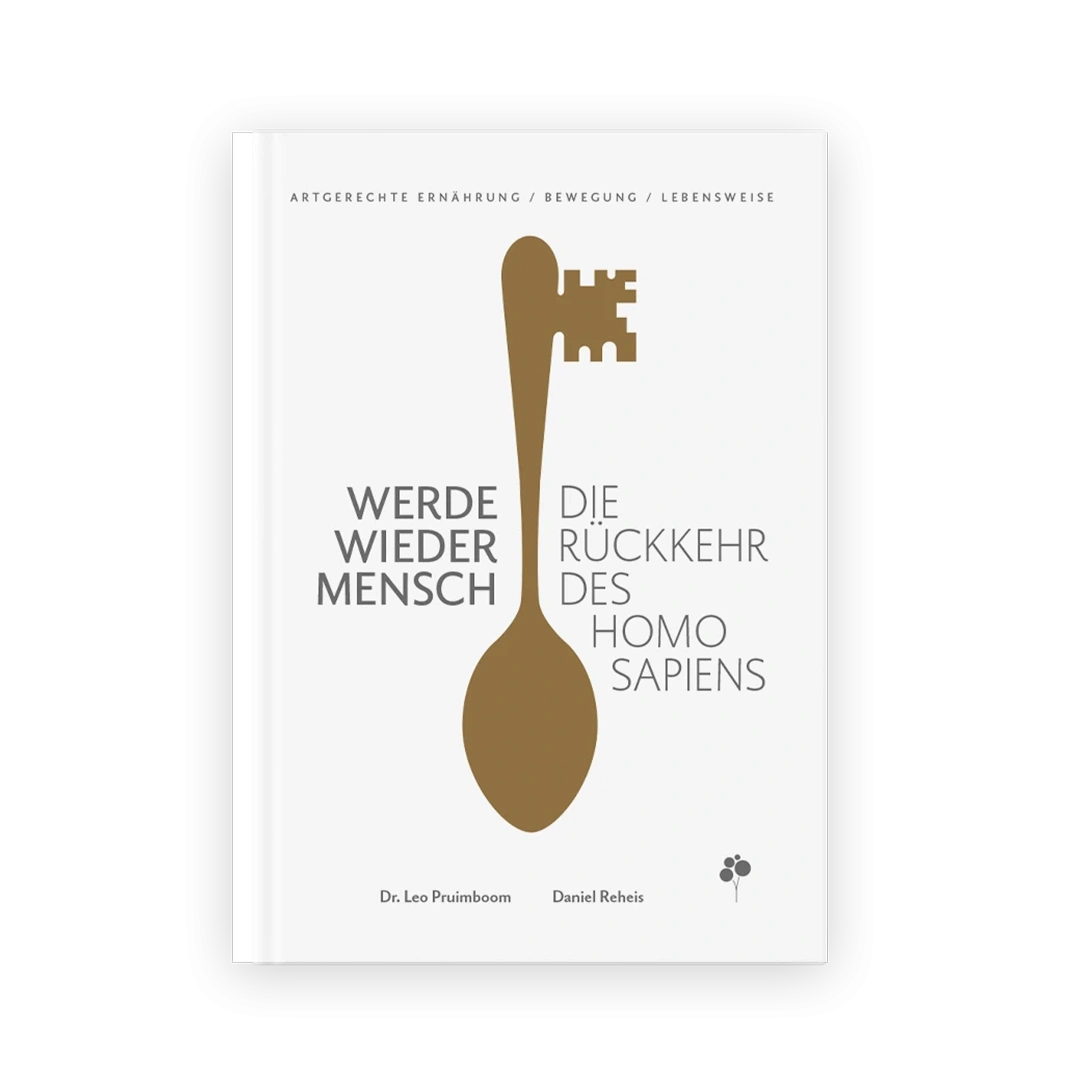 €39.90
€39.90 -
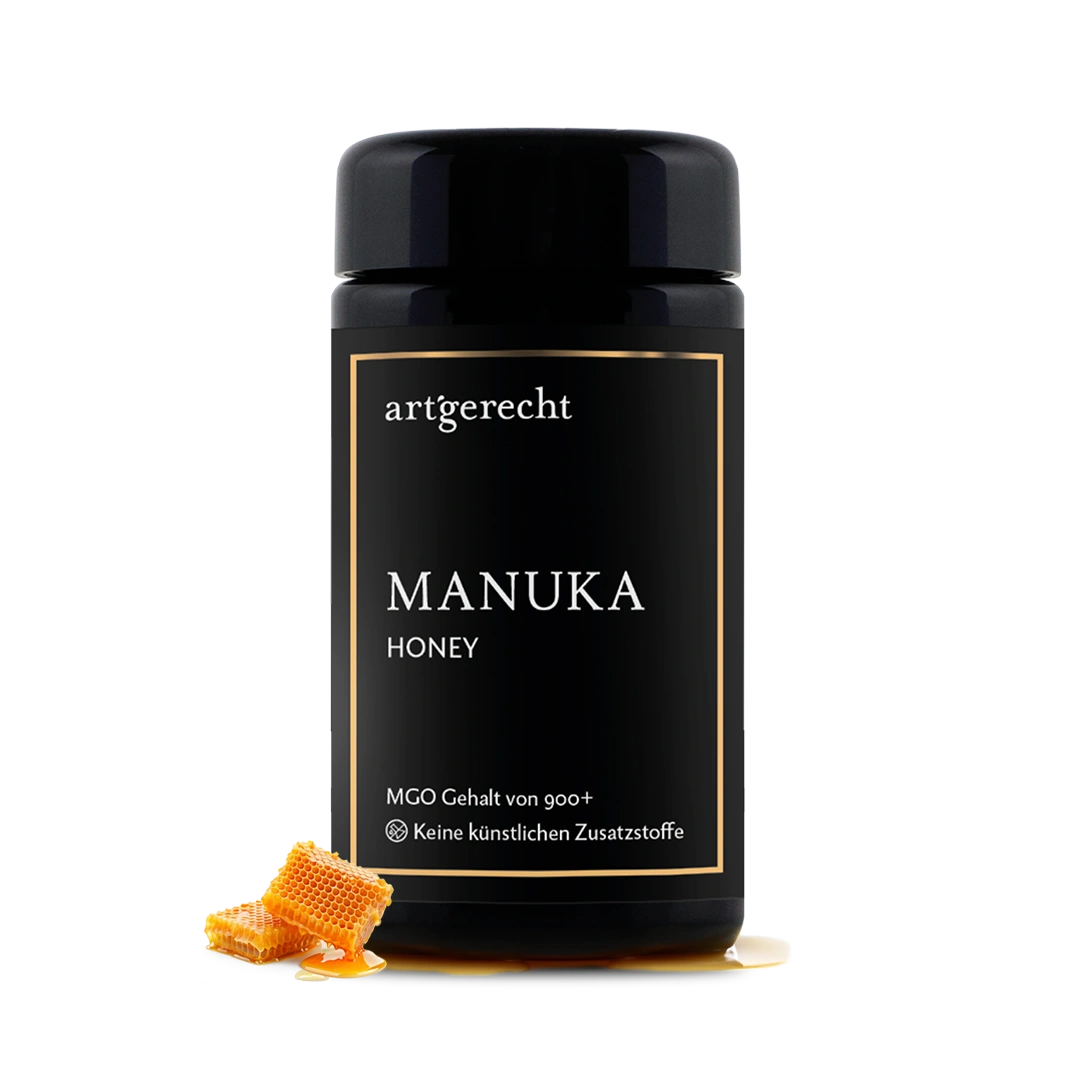 €99.90
€99.90
A balanced and healthy diet for us humans involves more than just “good” food. Our body reacts very differently to what we eat. Find out here what you should pay attention to
.This is how important a healthy diet is
The topic of healthy eating is always on everyone's lips. Vegan cuisine, vegetarian food or a bit of everything? What does a healthy diet actually depend on? One thing is certain: We love food. Or rather, our brain loves it - healthy or not. Eating is a very emotional matter, because the emotional part of our brain does not want to „do without“. Many people are addicted to fast food, sugar or industrially processed foods. A change in behavior will only happen if this part of the brain sees more gain than loss. This is probably the reason why many diets don't work in the long term: Our brain doesn't want to lose anything, not even weight. It makes much more sense for our brain to look good again, to feel healthy and to no longer be in pain. A healthy diet can be light and delicious and also provide a solution to many health problems - or ensure that they don't arise in the first place. Because health is our most valuable asset.
What can we learn from the diet of our ancestors for our health?
Our ancestors were never or rarely overweight and rarely suffered from diseases such as type 2 diabetes mellitus, arteriosclerosis or metabolic syndrome. One of the reasons for this optimal state of health was - and still is for today's hunters and gatherers - the fact that the food tasted less good. Almost all natural food, without further preparation, has a bitter aftertaste and not the mostly sweet or salty taste with lots of spices that it has today. To eat less, it can help to sometimes add a little too many herbs to your food - the strong flavor molecules ensure that you get full faster.
One of the most important points is variety and quality in a healthy diet. Regardless of whether we live a vegan or vegetarian lifestyle or consume animal-based foods. Ideally, we should consume around 160 different foods per month. That sounds a lot at first - but if you include fresh herbs, spices, various vegetables and fruit, you can reach this number relatively quickly. Quality should also be a top priority for our food. This is an important criterion for how beneficial a food is for our body, e.g. in terms of nutrient and vitamin density. Ideally, we use organic products that come from the region and pay attention to seasonal availability, sustainable cultivation and species-appropriate animal husbandry.
There are some foods that you can always have in stock in the kitchen to cook healthy recipes. Other foods are better bought fresh.Healthy fats, like:
- Good olive oil
- Ghee (clarified butter or clarified butter)
- Coconutöl
Spices dried, such as:
- Muscat nut
- Oregano
- Thyme
- Lory leaves
- Cinnamon
- /li>
- Aniseed
- Cardamom
- Coriander
- Juniper berries
- Pepper
- Honey, preferably manuka honey (particularly rich in methylglyoxal)
- Coconut milk
- Nuts
- Olives, capers
- /li>
- Vinegar
Fruit and vegetables
A must-have for a healthy diet and can sometimes be bought in stock and stored for a few weeks, for example:
- Lemon, orange
- Ginger
- Root vegetables such as carrot, parsnip, beetroot
- Süßpotato
- Äapples, pears
Fresh food
Fresh foods are also healthy and important for our diet and are best bought from weekly markets, supermarkets and organic food stores. These are also the best places to see what is in season and growing regionally. These include:
- Vegetables
- Fresh herbs (planted in pots or in bunches, e.g. parsley, dill, coriander, basil). Parsley, dill, coriander, basil)
- Salads
- Fruit
Animal products, such as:
- Fish (fatty fish varieties are particularly healthy, such as salmon)
- Meat
- Eggs
It is a good idea to always have a selection of fresh herbs such as parsley, dill, coriander or basil on hand. Either planted in pots or in bunches.
And what is with carbohydrates – healthy or not?
There are indeed considerable differences in carbohydrates and one should be careful about attributing negative properties to them in general. The secret probably lies in the distinction between the different types of carbohydrate.
What are the differences?
Plants such as cereals, potatoes and rice do not store their starch within the cell. The starch they contain is isolated and stored in high density so that it can be used quickly during germination. These carbohydrates are also found in large quantities in ready meals and baked goods and release a carbohydrate concentration in our digestive tract that is higher than anything our intestinal flora has experienced in its evolution. A quantity that simply overwhelms us. This benefits the pathogenic bacteria within our intestinal flora, which can use this high concentration for their reproduction.
Root vegetables such as carrots, radishes, salsify and parsnips, as well as fruits, leaves and nuts, store their carbohydrate content directly in active cellular substructures. These cell connections remain intact even during cooking, which means that the carbohydrates remain „locked up“ until they are slowly released during digestion. If you compare population groups that consume similar amounts but different compositions of carbohydrates, the differences can be seen directly in the intestinal flora.
Ideas for healthy recipes and light cooking in everyday life
Healthy, vegan beet soup with horseradish (light and tasty)
Ingredients
- 500 g beet tubers
- 1 onion
- 1 apple
- 1 tsp grated ginger
- 1 tbsp coconut oil
- 1 tsp curry powder
- 1 l vegetable stock or water
- ;sefond or water
- 1 lime or lemon
- salt, pepper
- 1 small piece of fresh horseradish
Preparation
- Peel the beet and cut into pieces. Peel and dice the onion. Cut the apple into pieces too.
- Sauté the onions and grated ginger in a pan with the coconut oil until translucent. Add the curry powder and sauté briefly. Add the beet and apple and pour in the vegetable stock or water.
- Leave to simmer gently for 15 minutes with the lid on.
- Finely puree the soup and season with lime juice, salt and pepper.
- Serve with freshly grated horseradish.
Algae salad with coriander and chilli (light, tasty and vegetarian)
Ingredients
- 120 g dried seaweed (e.g. wakame)
- 1 tbsp coriander leaves
- 1 chilli pepper
- 100 ml coconut milk
- 1 tbsp dark honey
- Pepper/li>
- Pepper, salt
Preparation
- Soak the seaweed, wash under running water and drain. The soaking time may vary depending on the type of seaweed.
- For the dressing, finely chop the coriander and chili flakes. Mix the coconut milk and honey well, add the coriander and chilli and season with salt and pepper (very little salt, as seaweed is already very salty). Marinate the seaweed in the dressing. Leave to stand for a few hours before serving.
Our tip: Fewer meals are healthy and good for digestion
A good diet doesn't just include healthy foods such as plenty of fruit and vegetables. The number and quantity of our meals also play a not insignificant role. If we want to do something good for our bodies and relieve the digestive system, we should reduce the frequency of our meals to around 19 meals per week. Sounds low at first, but it's actually not that bad.
In practice, this can look like this: You eat a lot and go without lunch or dinner two or more days a week. Or you can skip breakfast and only eat your first meal at lunchtime. However, it is important that the meals are filling in the long term. The recipes should be varied, colorful, fresh and also sufficient in terms of nutrient and calorie density.Our recommendation: Dinner should preferably not take place after 7 pm so that digestion is complete before we go to bed. This means that the body is not busy digesting, which has a positive effect on the quality of sleep.
Conclusion:
Implementing healthy, delicious and easy cooking is not that difficult.
Healthy eating doesn't have to be difficult. Quite the opposite. If we pay attention to a few points in our diet, we can easily cook healthily and do something good for our body without missing out on important nutrients. If you want to delve deeper into the topic of nutrition and health, you will find the inspiration you need on our website. Our new cookbook is all about healthy eating and how the combination of different foods affects our well-being. Anyone who asks themselves every day: ""What am I cooking today?"" will find lots of healthy recipes for every occasion.
Passende Produkte
-
 €39.90
€39.90 -
 €99.90
€99.90
Kürzlich hinzugefügte Beiträge
-
 Elektrolyte – Die unsichtbaren Regisseure unseres KörpersElektrolyte steuern lebenswichtige Prozesse wie Muskelarbeit, Nervenfunktion und Flüssigkeitshaushalt. Erfahre, warum sie für Gesundheit und Leistung so entscheidend sind.
Elektrolyte – Die unsichtbaren Regisseure unseres KörpersElektrolyte steuern lebenswichtige Prozesse wie Muskelarbeit, Nervenfunktion und Flüssigkeitshaushalt. Erfahre, warum sie für Gesundheit und Leistung so entscheidend sind. -
 Zink reduziert nachweislich die Krankheitsdauer – Was sagt die Wissenschaft?Zink kann mehr als nur das Immunsystem stärken. Studien zeigen, dass es die Dauer von Erkältungen spürbar verkürzen kann.
Zink reduziert nachweislich die Krankheitsdauer – Was sagt die Wissenschaft?Zink kann mehr als nur das Immunsystem stärken. Studien zeigen, dass es die Dauer von Erkältungen spürbar verkürzen kann. -
 Milk thistle: effect on liver health and detoxificationHow does milk thistle really protect our liver? Find out how silymarin neutralizes free radicals, supports detoxification and what studies say about its effect on fatty liver, hepatitis & co. Find out more now!
Milk thistle: effect on liver health and detoxificationHow does milk thistle really protect our liver? Find out how silymarin neutralizes free radicals, supports detoxification and what studies say about its effect on fatty liver, hepatitis & co. Find out more now! -
 Menopause is not a disease: everything women (and men) should knowHalf of humanity is affected by the menopause. The PRO issue of Health Nerds is all about facts, myths and tips about the menopause.
Menopause is not a disease: everything women (and men) should knowHalf of humanity is affected by the menopause. The PRO issue of Health Nerds is all about facts, myths and tips about the menopause. -
 Allergien und Heuschnupfen – Häufigkeit, Ursachen, Behandlung und PräventionOb Gräser, Pollen oder Hausstaub – Allergien betreffen immer mehr Menschen. Erfahre, warum sie entstehen, welche Therapien helfen und wie Du mit gezielter Vorbeugung die Beschwerden bei Dir oder Deinem Kind langfristig lindern kannst.
Allergien und Heuschnupfen – Häufigkeit, Ursachen, Behandlung und PräventionOb Gräser, Pollen oder Hausstaub – Allergien betreffen immer mehr Menschen. Erfahre, warum sie entstehen, welche Therapien helfen und wie Du mit gezielter Vorbeugung die Beschwerden bei Dir oder Deinem Kind langfristig lindern kannst. -
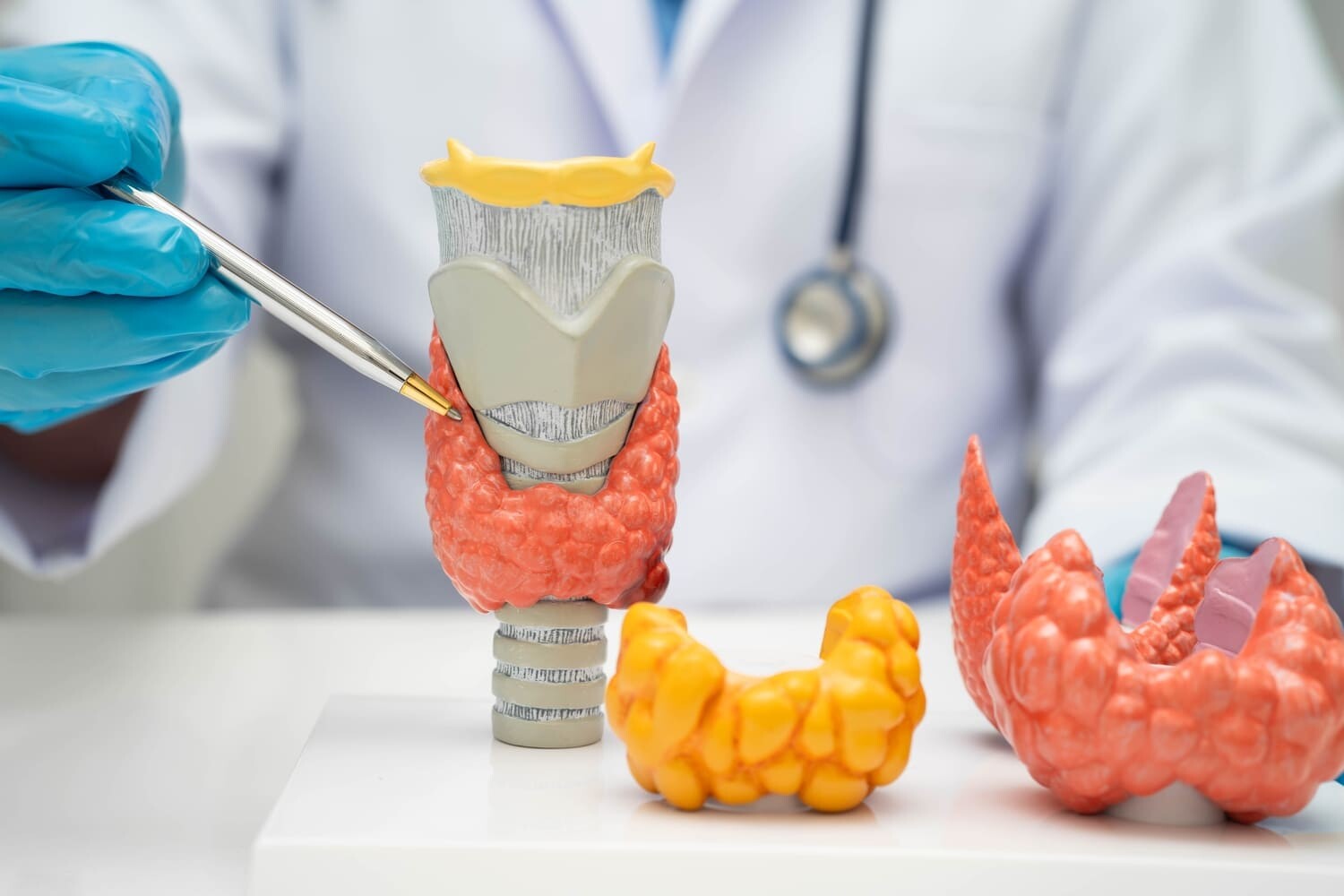 Hypothyreose und Übergewicht: Aktuelle Erkenntnisse und DatenSchilddrüsenunterfunktion und Gewichtszunahme hängen eng zusammen. Dieser Beitrag erklärt, wie Hypothyreose den Stoffwechsel beeinflusst, welche Symptome typisch sind und wie Du Deinen Körper trotz Diagnose unterstützen kannst.
Hypothyreose und Übergewicht: Aktuelle Erkenntnisse und DatenSchilddrüsenunterfunktion und Gewichtszunahme hängen eng zusammen. Dieser Beitrag erklärt, wie Hypothyreose den Stoffwechsel beeinflusst, welche Symptome typisch sind und wie Du Deinen Körper trotz Diagnose unterstützen kannst. -
 Elektrolyte – Die unsichtbaren Regisseure unseres KörpersElektrolyte steuern lebenswichtige Prozesse wie Muskelarbeit, Nervenfunktion und Flüssigkeitshaushalt. Erfahre, warum sie für Gesundheit und Leistung so entscheidend sind.
Elektrolyte – Die unsichtbaren Regisseure unseres KörpersElektrolyte steuern lebenswichtige Prozesse wie Muskelarbeit, Nervenfunktion und Flüssigkeitshaushalt. Erfahre, warum sie für Gesundheit und Leistung so entscheidend sind. -
 Zink reduziert nachweislich die Krankheitsdauer – Was sagt die Wissenschaft?Zink kann mehr als nur das Immunsystem stärken. Studien zeigen, dass es die Dauer von Erkältungen spürbar verkürzen kann.
Zink reduziert nachweislich die Krankheitsdauer – Was sagt die Wissenschaft?Zink kann mehr als nur das Immunsystem stärken. Studien zeigen, dass es die Dauer von Erkältungen spürbar verkürzen kann. -
 Milk thistle: effect on liver health and detoxificationHow does milk thistle really protect our liver? Find out how silymarin neutralizes free radicals, supports detoxification and what studies say about its effect on fatty liver, hepatitis & co. Find out more now!
Milk thistle: effect on liver health and detoxificationHow does milk thistle really protect our liver? Find out how silymarin neutralizes free radicals, supports detoxification and what studies say about its effect on fatty liver, hepatitis & co. Find out more now! -
 Menopause is not a disease: everything women (and men) should knowHalf of humanity is affected by the menopause. The PRO issue of Health Nerds is all about facts, myths and tips about the menopause.
Menopause is not a disease: everything women (and men) should knowHalf of humanity is affected by the menopause. The PRO issue of Health Nerds is all about facts, myths and tips about the menopause. -
 Allergien und Heuschnupfen – Häufigkeit, Ursachen, Behandlung und PräventionOb Gräser, Pollen oder Hausstaub – Allergien betreffen immer mehr Menschen. Erfahre, warum sie entstehen, welche Therapien helfen und wie Du mit gezielter Vorbeugung die Beschwerden bei Dir oder Deinem Kind langfristig lindern kannst.
Allergien und Heuschnupfen – Häufigkeit, Ursachen, Behandlung und PräventionOb Gräser, Pollen oder Hausstaub – Allergien betreffen immer mehr Menschen. Erfahre, warum sie entstehen, welche Therapien helfen und wie Du mit gezielter Vorbeugung die Beschwerden bei Dir oder Deinem Kind langfristig lindern kannst. -
 Hypothyreose und Übergewicht: Aktuelle Erkenntnisse und DatenSchilddrüsenunterfunktion und Gewichtszunahme hängen eng zusammen. Dieser Beitrag erklärt, wie Hypothyreose den Stoffwechsel beeinflusst, welche Symptome typisch sind und wie Du Deinen Körper trotz Diagnose unterstützen kannst.
Hypothyreose und Übergewicht: Aktuelle Erkenntnisse und DatenSchilddrüsenunterfunktion und Gewichtszunahme hängen eng zusammen. Dieser Beitrag erklärt, wie Hypothyreose den Stoffwechsel beeinflusst, welche Symptome typisch sind und wie Du Deinen Körper trotz Diagnose unterstützen kannst. -
 Elektrolyte – Die unsichtbaren Regisseure unseres KörpersElektrolyte steuern lebenswichtige Prozesse wie Muskelarbeit, Nervenfunktion und Flüssigkeitshaushalt. Erfahre, warum sie für Gesundheit und Leistung so entscheidend sind.
Elektrolyte – Die unsichtbaren Regisseure unseres KörpersElektrolyte steuern lebenswichtige Prozesse wie Muskelarbeit, Nervenfunktion und Flüssigkeitshaushalt. Erfahre, warum sie für Gesundheit und Leistung so entscheidend sind. -
 Zink reduziert nachweislich die Krankheitsdauer – Was sagt die Wissenschaft?Zink kann mehr als nur das Immunsystem stärken. Studien zeigen, dass es die Dauer von Erkältungen spürbar verkürzen kann.
Zink reduziert nachweislich die Krankheitsdauer – Was sagt die Wissenschaft?Zink kann mehr als nur das Immunsystem stärken. Studien zeigen, dass es die Dauer von Erkältungen spürbar verkürzen kann. -
 Milk thistle: effect on liver health and detoxificationHow does milk thistle really protect our liver? Find out how silymarin neutralizes free radicals, supports detoxification and what studies say about its effect on fatty liver, hepatitis & co. Find out more now!
Milk thistle: effect on liver health and detoxificationHow does milk thistle really protect our liver? Find out how silymarin neutralizes free radicals, supports detoxification and what studies say about its effect on fatty liver, hepatitis & co. Find out more now! -
 Menopause is not a disease: everything women (and men) should knowHalf of humanity is affected by the menopause. The PRO issue of Health Nerds is all about facts, myths and tips about the menopause.
Menopause is not a disease: everything women (and men) should knowHalf of humanity is affected by the menopause. The PRO issue of Health Nerds is all about facts, myths and tips about the menopause.
Empfohlene Produkte
Holistic support for bones, joints, muscles & skin
For your well-being – inside and outEssential Vitamin for Eyes, Skin, and Immune System
High-Dose Support for Cells & Immune DefenseFor your universal protection
As one of the most valuable proteins in the body, lactoferrin is a natural component of the immune system.For your iron balance
Specially formulated for your iron balance with plant-based curry leaf iron, Lactoferrin CLN®, and natural Vitamin C from rose hips.Holistic support for bones, joints, muscles & skin
For your well-being – inside and outEssential Vitamin for Eyes, Skin, and Immune System
High-Dose Support for Cells & Immune DefenseFor your universal protection
As one of the most valuable proteins in the body, lactoferrin is a natural component of the immune system.For your iron balance
Specially formulated for your iron balance with plant-based curry leaf iron, Lactoferrin CLN®, and natural Vitamin C from rose hips.Holistic support for bones, joints, muscles & skin
For your well-being – inside and outEssential Vitamin for Eyes, Skin, and Immune System
High-Dose Support for Cells & Immune DefenseFor your universal protection
As one of the most valuable proteins in the body, lactoferrin is a natural component of the immune system.For your iron balance
Specially formulated for your iron balance with plant-based curry leaf iron, Lactoferrin CLN®, and natural Vitamin C from rose hips.Holistic support for bones, joints, muscles & skin
For your well-being – inside and outEssential Vitamin for Eyes, Skin, and Immune System
High-Dose Support for Cells & Immune DefenseFor your universal protection
As one of the most valuable proteins in the body, lactoferrin is a natural component of the immune system.For your iron balance
Specially formulated for your iron balance with plant-based curry leaf iron, Lactoferrin CLN®, and natural Vitamin C from rose hips.
